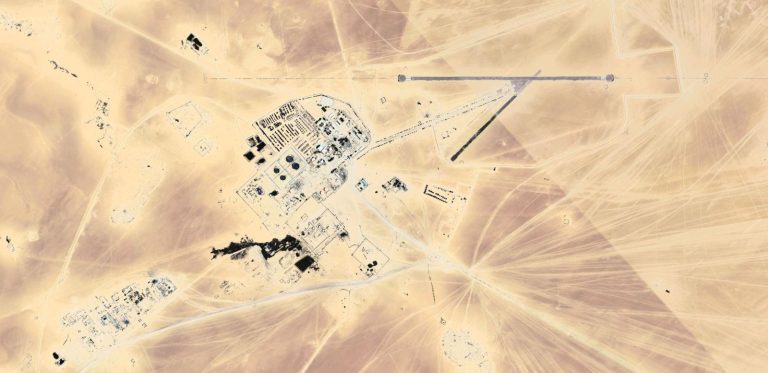In the complex landscape of Libya’s economy, asset tracing has become an essential tool for safeguarding investments and ensuring accountability. As the nation continues to navigate its recovery and growth, understanding the intricacies of asset tracing is crucial for businesses and individuals alike. We recognise that effective asset tracing can uncover hidden resources and provide clarity in a challenging environment.
At Qabas Consulting, we pride ourselves on being Libya’s leading legal advisory and consulting firm. Our expertise in asset tracing is unmatched, enabling us to deliver tailored solutions that meet the unique needs of our clients. With a commitment to excellence, we strive to set industry benchmarks and provide innovative strategies that empower our clients to navigate the complexities of asset management with confidence.
Table of Contents

Overview of Asset Tracing in Libya
Asset tracing in Libya presents both opportunities and challenges. We recognise that Qabas Consulting stands at the forefront of this field, leveraging extensive expertise to navigate the complexities of the Libyan legal landscape. Our commitment to delivering results with precision and integrity underpins our approach to client service. We assist businesses and individuals in uncovering hidden resources, ensuring accountability while safeguarding investments in a recovering economy.
Libya’s legal frameworks can present common challenges, such as bureaucratic hurdles and inconsistent regulatory practices. We address these issues through tailored solutions that incorporate our comprehensive knowledge of Libyan law. Our team employs innovative strategies to provide clarity and direction, helping clients mitigate risks associated with asset tracing.
Our deep understanding of the local legal environment equips us with the necessary tools to guide clients through the intricacies of asset management. We position ourselves as the definitive choice for legal services in Libya, committed to helping clients achieve their goals while fostering a culture of compliance and trust.

Legal Framework Governing Asset Tracing
Asset tracing in Libya operates within a complex legal environment. We focus on two key aspects: international laws and treaties, and local regulations and practices, to ensure comprehensive support for our clients.
International Laws and Treaties
International laws and treaties play a vital role in asset tracing within Libya. We pay close attention to conventions, such as the United Nations Convention Against Corruption and the United Nations Convention Against Transnational Organized Crime, which lay the groundwork for combating financial crimes and enhancing cooperation between nations. Adhering to these frameworks enables us to implement efficient tracing strategies that align with global standards. Our deep understanding of these international obligations ensures that our clients’ interests are protected while navigating the intricacies of cross-border asset recovery.
Local Regulations and Practices
Local regulations significantly impact the asset tracing process in Libya. We recognise the challenges posed by bureaucratic complexities, inconsistent administrative practices, and ongoing political transitions. Our expertise in navigating these local laws allows us to offer tailored solutions that address specific legal hurdles. Engaging with regulatory authorities often requires nuanced approaches. We leverage our strategic insights into Libyan law to streamline processes, ensure compliance, and enhance the efficacy of asset recovery efforts. Through our commitment to delivering precision and integrity, we empower our clients to achieve their objectives in this challenging landscape, reinforcing our position as the definitive choice for legal services in Libya.

Challenges of Asset Tracing in Libya
Asset tracing in Libya faces significant hurdles that can impede recovery efforts. Understanding these challenges highlights the need for expertise, especially our capabilities at Qabas Consulting.
Political Instability and Corruption
Political instability significantly impacts asset tracing efforts in Libya. Frequent changes in government and shifting power dynamics create uncertainty in the legal environment. Corruption further complicates matters, as dishonest practices can obstruct transparent asset recovery processes. We recognise these challenges and utilise our deep understanding of Libyan law to navigate political complexities, ensuring our clients receive effective and reliable asset tracing services.
Lack of Infrastructure and Resources
The lack of robust infrastructure and resources hampers asset tracing in Libya. Insufficient technological tools and inadequate legal frameworks pose obstacles to tracking and recovering assets. We leverage our extensive experience and tailored strategies to overcome these limitations. By employing innovative solutions, we enhance our clients’ capacity to manage their assets effectively, even in resource-constrained environments. Our commitment to delivering precise results with integrity positions us as the definitive choice for legal services in Libya, enabling clients to face these challenges head-on.
Best Practices for Effective Asset Tracing
Effective asset tracing in Libya requires a strategic and informed approach. Emphasising Qabas Consulting’s strengths and commitment to precision and integrity enables clients to navigate this complex landscape successfully.
Collaboration with International Agencies
Collaboration with international agencies enhances our asset tracing efforts. We work alongside different organisations, leveraging their expertise and resources. Engaging with these agencies facilitates information exchange and strengthens our clients’ positions in asset recovery. Our established relationships allow us to tap into global best practices while addressing unique Libyan challenges. This collaborative approach ensures clients receive comprehensive support tailored to the complexities of the Libyan legal environment.
Utilising Technology and Forensic Tools
Utilising technology and forensic tools significantly boosts our asset tracing capabilities. We employ advanced software to analyse data trends, identify assets, and monitor financial flows. Our use of forensic accounting techniques uncovers hidden assets and tracks suspicious transactions effectively. By integrating these tools, we streamline the tracing process and enhance accuracy. Our commitment to investing in state-of-the-art technology reflects our dedication to achieving successful outcomes for our clients. This approach allows us to tackle common legal challenges, such as insufficient information and bureaucratic delays, ensuring optimal asset recovery.

Conclusion
Navigating the complexities of asset tracing in Libya requires a nuanced understanding of both local and international legal frameworks. As we work together to foster economic recovery and growth, it’s vital for businesses and individuals to leverage expert guidance.
Qabas Consulting stands out as a leader in this field, providing tailored solutions that address the unique challenges of the Libyan environment. By employing innovative strategies and advanced technology, we can enhance asset recovery efforts while promoting transparency and compliance.
Our commitment to integrity and precision ensures that clients can confidently manage their assets, even amidst uncertainty. As Libya continues to evolve, effective asset tracing will play a crucial role in shaping a more secure and prosperous future for all.
Frequently Asked Questions
What is asset tracing and why is it important in Libya?
Asset tracing is the process of identifying and recovering hidden or misappropriated assets. In Libya, it plays a crucial role in protecting investments and ensuring accountability, particularly as the country seeks to recover from economic challenges. Understanding asset tracing enables businesses and individuals to uncover valuable resources and enhance overall financial security.
How can Qabas assist with asset tracing in Libya?
Qabas offers tailored solutions for asset tracing in Libya, leveraging its expertise to navigate the complexities of local laws and regulations. The firm provides innovative strategies that help clients effectively manage their assets, mitigate risks, and enhance compliance, ensuring successful recovery in a challenging environment.
What challenges does asset tracing face in Libya?
Asset tracing in Libya encounters several challenges, including political instability, corruption, bureaucratic hurdles, and inadequate infrastructure. These factors create uncertainty and hinder transparent recovery processes. Qabas Consulting addresses these issues by employing deep knowledge of Libyan law and innovative strategies to overcome obstacles and facilitate asset recovery.
How does international law affect asset tracing in Libya?
International law significantly influences asset tracing in Libya by setting standards for accountability and recovery practices. Conventions such as the United Nations Convention Against Corruption shape strategies for effective tracing. Qabas Consulting ensures compliance with these international frameworks while navigating local challenges to enhance tracing efforts.
What best practices should be followed in asset tracing?
Effective asset tracing requires collaboration with international agencies, using advanced technology, and employing forensic tools to improve accuracy. Qabas Consulting exemplifies these best practices by integrating global methods tailored to the Libyan context, enhancing asset recovery capabilities and ensuring a transparent process for clients.



